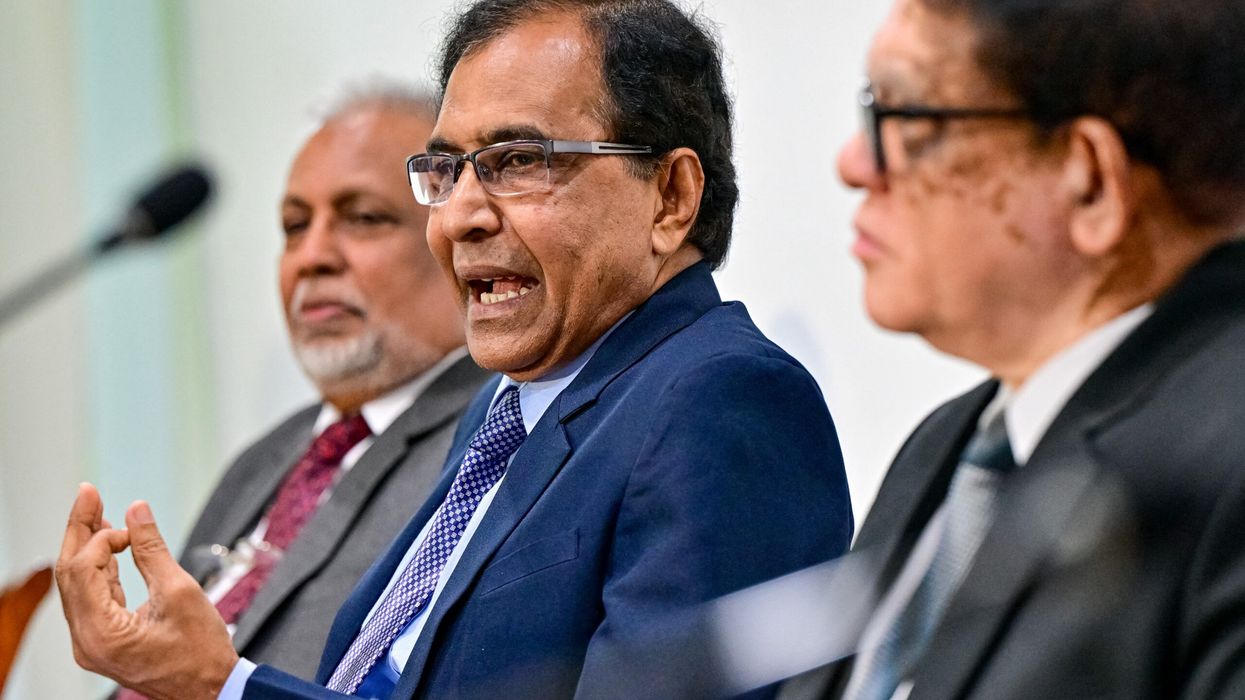Sri Lanka's election commission announced on Friday (26) that the presidential election will take place on September 21. This will be the first election since the unprecedented economic crisis and widespread unrest of 2022, which led to severe shortages of food, fuel, and medicine.
President Ranil Wickremesinghe, 75, who assumed office after his predecessor was ousted by mass protests, has declared his candidacy as an independent.
Wickremesinghe will compete against at least two rivals who oppose the austerity measures his administration implemented to secure a bailout package from the International Monetary Fund.
Election commission chair RMAL Rathnayake told reporters that the election had been scheduled for September 21, a Saturday, to ensure a high turnout.
Economic issues are expected to dominate the five-week campaign announced by the commission as the country emerges from its worst-ever recession in 2022, when the GDP shrank by a record 7.8 per cent.
Inflation has since returned to normal levels from its peak of 70 percent at the height of the crisis.
Wickremesinghe has also successfully negotiated a restructuring of Sri Lanka's $46 billion (£35.7bn) foreign debt with bilateral lenders including China, following a 2022 government default.
But his policies to balance the government's books by hiking taxes and withdrawing generous utility subsidies have been deeply unpopular with the public.
Wickremesinghe's austerity measures 'pushed many Sri Lankans into poverty'
While the months-long shortages seen at the peak of the economic crisis are now a distant memory, many Sri Lankans say Wickremesinghe's austerity measures have left them struggling to make ends meet.
"The main reason why you don't see queues for food and fuel now is because people can't afford them," opposition politician Eran Wickramaratne told AFP.
"More people have been pushed into poverty in the past two years."
Opposition parties have vowed to renegotiate terms of the $2.9bn (£2.2bn) IMF bailout Wickremesinghe negotiated last year.
The president's main challenger so far is Sajith Premadasa, 57, a one-time party ally and current opposition leader.
Premadasa has vowed to continue with economic reforms and the IMF programme but pledged to cushion the public by reducing the tax increases Wickremesinghe imposed to shore up state revenue.
A leftist party is also fielding its leader, 55-year-old former agriculture minister Anura Kumara Dissanayake, who is campaigning against plans to privatise state companies
Wickremesinghe took office following the government default in 2022, after a huge crowd stormed predecessor Gotabaya Rajapaksa's compound.
Rajapaksa, who was accused of steering Sri Lanka into the crisis through economic mismanagement, temporarily fled abroad and issued his resignation from Singapore.
Field Marshal Sarath Fonseka, Sri Lanka’s former Army chief known for his pivotal role in the military campaign that defeated the LTTE, has also formally announced his candidacy.
Local elections were due to be held last year but postponed indefinitely after the government insisted it had no money to conduct a nationwide vote.
More than 17 million Sri Lankans over the age of 18 are eligible to cast a ballot.
The election commission has allocated $33 million (£25.6m) for this year's presidential poll. (AFP)




